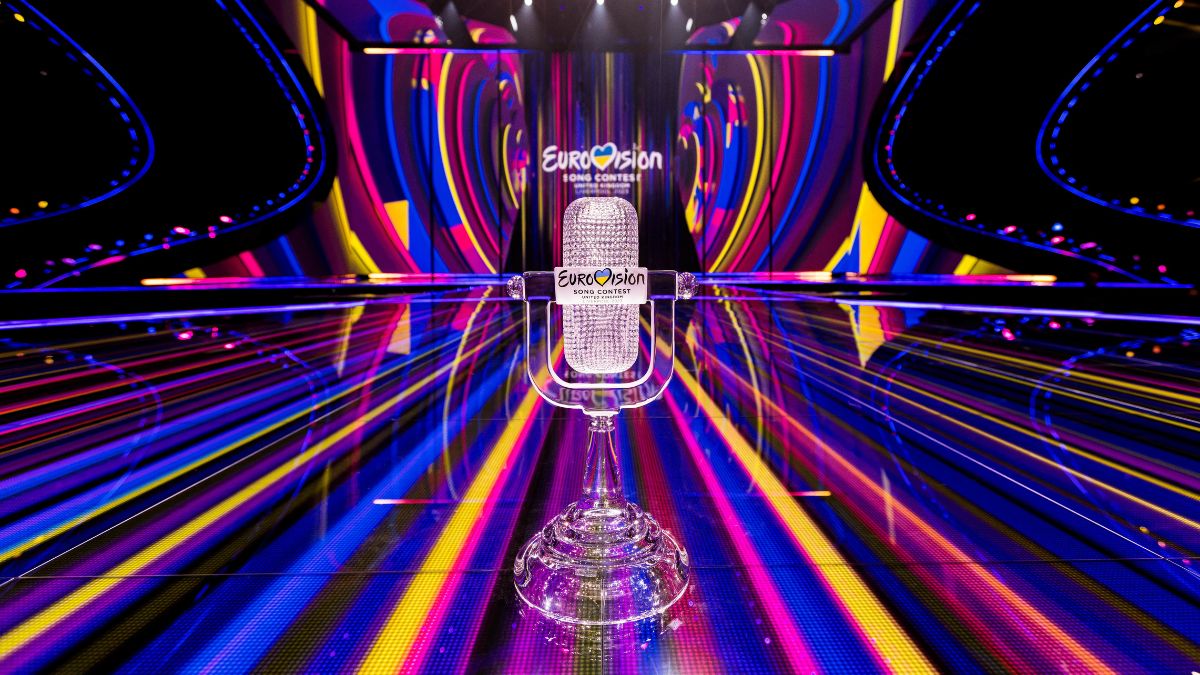Things will be slightly different during the 2023 Eurovision Song Contest. Not only will this be the first ever song contest to be ever co-hosted by two countries, but the voting system has also changed. Due to a voting controversy that occurred during the second semi-finals of the 2022 song contest, the EBU has announced that jury votes will no longer be counted during the semi-finals. This means that acts need to capture the eyes and ears of the audience if they want a chance to win the Eurovision trophy.
37 countries will be competing in this year’s music event as they figure out who will take home the prestigious trophy after Ukraine’s Kalush Orchestra. From returning contestants, to fan favorites, and those in between, this 2023 Eurovision Song Contest is definitely a must-watch event.
But only 27 artists can compete in the grand final, and this is who they are.
The Big 5 & the previous winner
According to Eurovision lore, the Big 5 consist of five countries known for their huge financial contributions to the EBU. Due to this, they’re automatically sent to the grand final without needing to participate in the semi-finals. Also joining the Big 5 is the country that won the previous song contest. In this case, that is Ukraine.
So with that in mind, here are the six countries that are automatically included in the grand final.
- France (La Zarra – “Évidemment”)
- Italy (Marco Mengoni – “Due Vite”)
- Germany (Lord of the Lost – “Blood & Glitter”)
- Spain (Blanca Paloma – “Eaea”)
- United Kingdom (Mae Muller – “I Wrote A Song”)
- Ukraine (TVORCHI – “Heart Of Steel”)
Semi-final one qualifiers
It was a powerful night during the first semi-finals. Two of the biggest contenders (Finland and Sweden) duked it out and won the hearts of fans. But even if that night had their eyes on those two performers, the rest of the contenders showed that Eurovision is fun and that it’s a huge musical spectacle filled with talent.
Here are the 10 acts from the first semi-final that qualified for the grand final.
- Croatia (Let 3 – “Mama ŠČ!”)
- Moldova (Pasha Parfeni – “Soarele şi Luna”)
- Switzerland (Remo Forrer – “Watergun”)
- Finland (Käärijä – “Cha Cha Cha”)
- Czechia (Vesna – “My Sister’s Crown”)
- Israel (Noa Kirel – “Unicorn”)
- Portugal (Mimicat – “Ai Coração”)
- Sweden (Loreen – “Tattoo”)
- Serbia (Luke Black – “Samo Mi Se Spava”)
- Norway (Alessandra – “Queen of Kings”)
Semi-final two qualifiers
It’s no secret that the second semi-finals were a slow one. Regardless, people were entertained, the music was really good, and audiences were shocked to see Peppa Pig make an official appearance. And during the near end of the second semi-finals, the EBU’s Executive Supervisor, Martin Österdahl, roasted the results announcement due to a jury voting scandal that happened last year.
Here are the countries from the second semi-finals that qualified for the grand finals.
- Albania (Albina & Familja Kelmendi – “Duje”)
- Cyprus (Andrew Lambrou – “Break A Broken Heart”)
- Estonia (Alika – “Bridges”)
- Belgium (Gustaph – “Because Of You”)
- Austria (Teya & Salena – “Who The Hell Is Edgar?’)
- Lithuania (Monika Linkytė – “Stay”)
- Poland (Blanka – “Solo”)
- Australia (Voyager – “Promise”)
- Armenia (Brunette – “Future Lover”)
- Slovenia (Joker Out – “Carpe Diem”)
The winner of this year’s Eurovision Song Contest will be determined this Saturday, featuring a returning performance by last year’s winner, Kalush Orchestra. This year’s song contest will allow people all over the world, not just Europe and Australia, to vote for their favorite act. So if you don’t want to miss out, you can catch the Grand Finals this Saturday.

